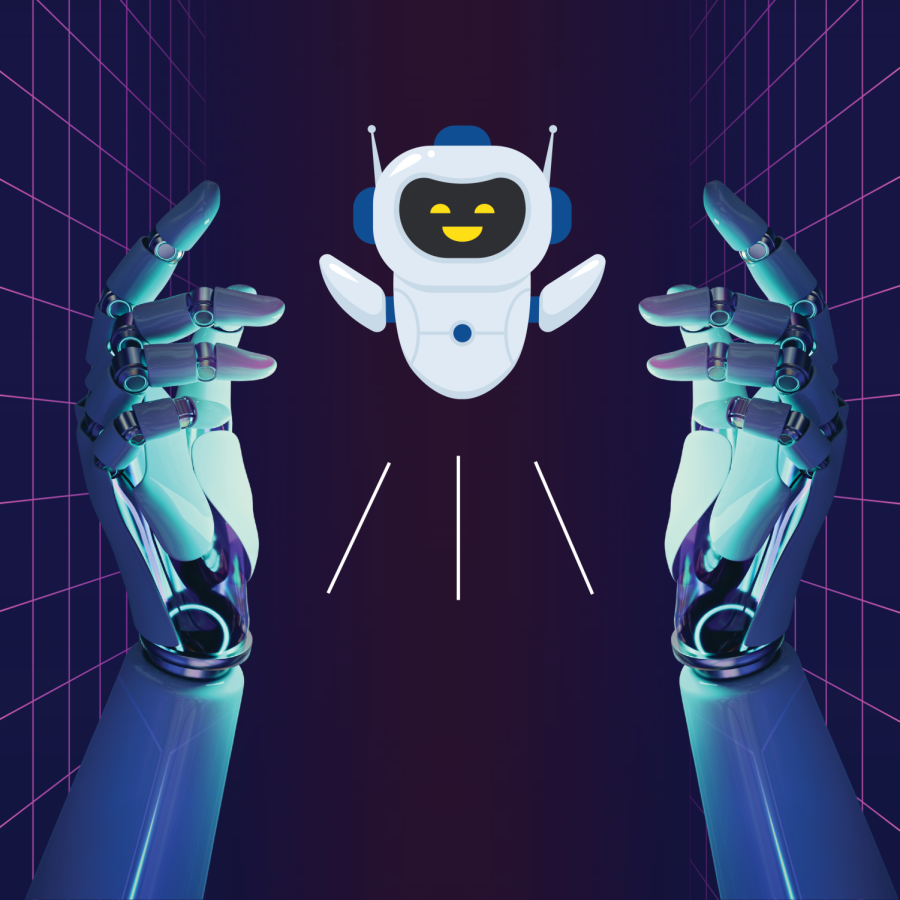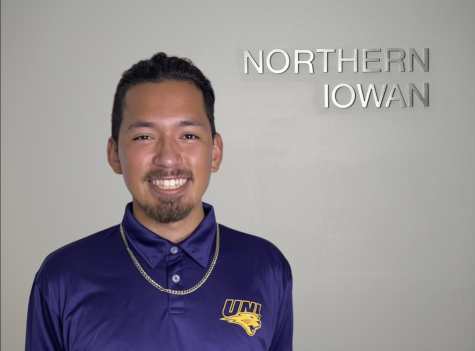The search engine war: ChatGPT vs Google
ChatGPT has sent Google scrambling into adopting AI for its own platform.
Feb 8, 2023
Wave the flag: the race to building the perfect artificial intelligence has just begun.
If you have not heard of ChatGPT, think of it as Google – the difference is that it is a chatbot made with artificial intelligence (AI). This chatbot can respond to you and respond to requests as if it were a personal librarian.
ChatGPT is a state-of-the-art language model developed by OpenAI that can be used for a wide range of natural language processing tasks, such as language translation, text summarization, text generation, and question answering. It has been trained on a massive amount of text data, making it highly proficient at understanding and generating human-like text. Additionally, ChatGPT can be fine-tuned for specific use cases such as customer service chatbot, virtual writing assistant, and many more. With its ability to understand and respond to natural language input, ChatGPT has the potential to revolutionize the way we interact with machines.
If you are not scared please know everything that you have just read in italics was written by ChatGPT. In a matter of five days of its release ChatGPT gained 1 million users. Just to compare, Facebook and Instagram took several months to reach the 1 million user benchmark according to the Indian Express. ChatGPT is not only becoming a competitor to Google at the rate it is growing, but Google and many companies are already in the phases of releasing a new chatbot. Google is working on the one called “Bard” according to the New York Times. It was mentioned in the article that they are doing some testing with small private groups before releasing it into the public.
In a matter of two months Microsoft – one of Google’s competitors – has sealed a multi-billion dollar investment in OpenAI. Microsoft executives are using AI to challenge Google and beginning what is starting to feel like a search engine war according to the financial times.
The misuse of AI
Professors and educators before you send out your next exam I would highly recommend you test ChatGPT with your own exam. It turns out that ChatGPT passed medical, business and law exams. It even scored higher than regular students according to the Morning Brew. The crazy thing about it is that this is just the start, we are nowhere near the end of how much disruption this tool can make. This is a threat to online schools and this cheapens the degree if cheating is done.
AI is ruining the reputation of schools. However, this tool is not perfect which increases the competition between companies in making the ultimate search engine. AI is here to stay and will continue to grow more and more.
Jim O’Loughlin, department of English, mentioned in an email interview that, “(AI)It can obviously be abused (though I haven’t seen any examples of that happening here yet), but a number of faculty are trying to figure out what the educational possibilities are for working with ChatGPT. We’re all trying to distinguish what uses would seem appropriate and ethical and which ones wouldn’t be. None of this is straight forward.”
Can AI be useful?
This is a tool; let’s embrace it, not ignore it. In the earlier years of Google, many have feared about Google’s assistance in terms of pulling out answers and taking away the traditional memorization. This tool can be used to debug code when building a website, or asking to write you full poem and rejection letters to save you the time.
In Microsoft Teams premium at the end of every meeting, notes will be taken automatically by ChatGPT and those who missed long meetings will get detailed summaries. The craziest thing is individuals can ask ChatGPT directly questions about previous meetings with an immediate response.
The AI is used to generate human-like text, making it a natural dialogue with users and chatbots
It can also even generate content and reply to a high value of inquires around the clock
Some cons
ChatGPT is currently only in English text, so it may not perform as well in non-English inquiries. Also, it only operates on the input – not on the entire context of the request which may bring inappropriate responses according to ChatGPT.
The need for continuous improvement is just a lot to manage, especially when the times continue to change
The chatbot uses a large data set in which may contain biases in its responses
Open the conversation and talk to students: we are human
Embrace the tool – it is powerful for everyone in all industries. Also acknowledge that we have to be honest in when, where and why we use it. Many call this out to be a huge disruption, that disruption is calling out the cheaters in educational settings and those who seek the short cut. My advice is having an open conversation with students about acknowledging the tool, but also coming to a greater understanding of ways this can disrupt the teaching and learning process.
“Using ChatGPT output for an assignment without crediting or citing it would be a violation of UNI’s Academic Integrity policy, and students need to be aware of that. However, it is likely that different faculty will have different policies regarding its use for research or editing assistance. It is definitely something to clear with a faculty member,” O’Loughlin said in an email.
ChatGPT can’t teach creativity, it can’t teach you to have passion or find your purpose in life. It can’t teach how to critically think. It actually does the opposite. In a world that seeks problem solvers that is why learning is important – to learn to solve problems and to learn about the next phases of the world around us.
I highly recommend making a statement in your syllabus about this sooner, because the more time we don’t acknowledge this, the more it impacts the students who are already using this.
“In the short term, there may be efforts to put the genie back in the bottle by having more in-class exams or requiring students to show the editing history of documents, but in the long term this technology is here to stay and we will need to learn to work with it going forward. In a few years, I imagine AI writing tools (Chat GPT or something else) will be as familiar to us as Wikipedia, grammar checkers or graphing calculators. But until that time, we all have a lot to figure out,” O’Loughlin said in an email.
Students will cheat for a variety of reasons. The rise of AI has allowed for papers to be written in mere minutes, something impossible in decades prior.
What assignments should professors start taking away?
I am speaking to the choir when I say this: it is time we take down discussion posts. Discussion posts are discussions that are held virtually and in some classrooms students are required to do a word count for example 250 words – it is also graded. ChatGPT can create responses for you.
In my four years of college I can’t remember a good engaging conversation I have had through discussion posts. Although I understand that this skill is about having to discuss with colleagues on content in the class, this is more impactful in-person. Digital Natives already get enough conversations online, especially screen time. Part about having those conversations is to challenge and hear other people’s opinions on things they can relate either on a topic or a book.
Make small groups and let conversations go from there – with some questions to answer of course – in-person conversations is the education experience students pay for. It will be a little more work, on both parties, but it is what will be the most effective.
When to use ChatGPT
The matter of using ChatGPT matters in how much stake there is in the assignment.
ChatGPT doesn’t have to be all that serious in request. If you ask ChatGPT to write a song it will write you a song. If you want a thoughtful love letter it will give you a love letter. The matter about using ChatGPT is if the output will require the truth and honesty. If the truth doesn’t matter, use it, but if it does, be careful if you are an expert in the field and fact check, but it is important you admit legally and morally about utilizing ChatGPT.
“One way to approach this question is to ask how students would feel if they found out a faculty member had used ChatGPT to grade their writing assignments without reading them.” O’Loughlin said in an email, “After starting this message, I went through and took some questions from a final exam last semester and asked ChatGPT to grade a few sample student answers. It produced feedback that was accurate enough, but the grades it gave seemed somewhat random. All of us, students and faculty, need to work together to figure out how to best adapt to this new learning environment.”
Fighting the new era of Artificial Intelligence
There are multiple individuals working in finding a way to track down those who used ChatGPT. AI Text Classifier is a great example in which you can submit essays and see if it was written by a human or a robot. A senior from Princeton, Edward Tian, created an app to combat the use of ChatGPT, according to CBS news.
The war is virtual, but in reality the search engine war will push the limitations into making the ultimate search engine the amount of accountability and pushback is small. This will be the new world we will live in.









